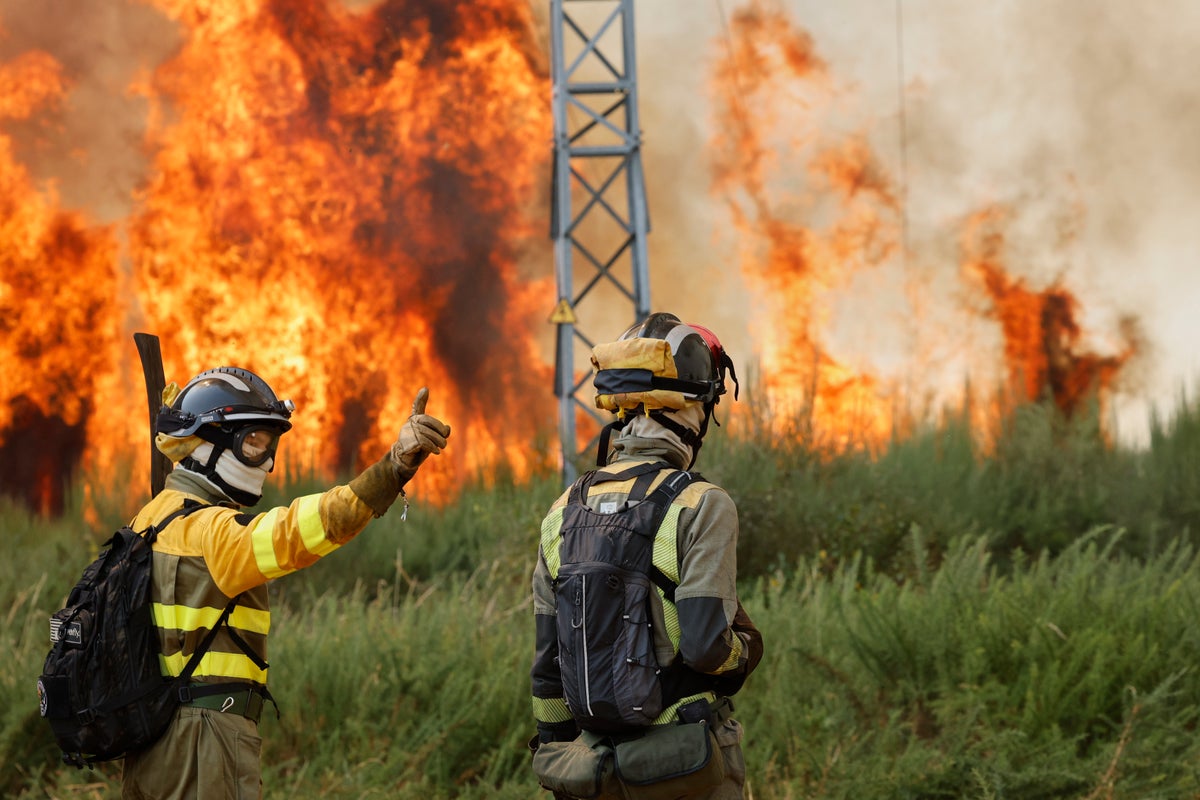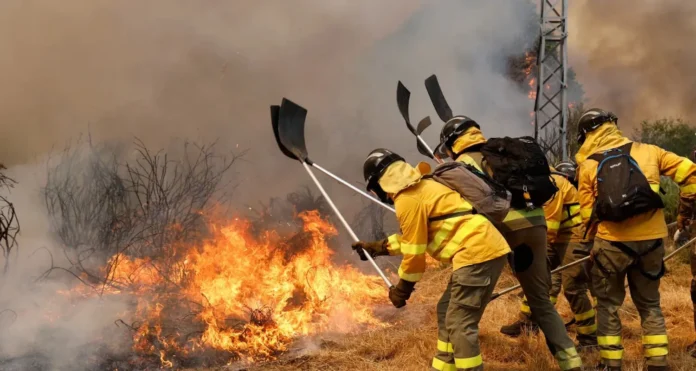Spain Struggles to Contain Wildfires
Spain has sent 500 more soldiers to join the fight against spreading wildfires as record heat continues to dry out forests and farmland. The latest deployment raises the number of military personnel on the ground to more than 1,900. The government confirmed that many of the blazes remain active in Galicia, where homes are still under threat and several towns have faced evacuations.
The Spanish weather agency reported that temperatures may reach up to 45 degrees Celsius in some regions, which creates extreme conditions for both firefighters and residents. According to the European Union’s forest fire tracking system, the country has already lost 158,000 hectares of land this year, which is roughly the size of greater London.
The prime minister, Pedro Sánchez, said Spain would also receive support from other European nations, including aircraft from the Netherlands, France, and Italy, under an international aid agreement. Local officials have urged residents to limit outdoor activity and wear masks due to heavy smoke and ash in the air.
Portugal Faces Record Forest Loss

Portugal, Spain’s neighbor, has also been hit by widespread fires this month. The government confirmed that 139,000 hectares of woodland have already burned in 2025, which is 17 times more than during the same period last year. Nearly 4,000 firefighters supported by aircraft remain on the ground, while cooler weather expected this week may offer some relief.
Officials in Lisbon extended a state of alert earlier this month, acknowledging that the country’s emergency resources are stretched thin. As seen in Spain, Portugal has also called in support from other European firefighting forces.
Turkey and Other Nations Request Support
The wildfire crisis is not limited to the Iberian Peninsula. In Turkey, fires forced evacuations in six villages in the northwestern region of Canakkale. Authorities reported that the flames came close to the Gallipoli memorial site, an area of historic importance linked to World War I. About 1,300 personnel and 30 aircraft have been working to contain the situation.
Other European countries, including Greece, Bulgaria, Montenegro, and Albania, have also asked for help from the EU’s shared firefighting force. Officials said that the force has already been used as many times in 2025 as during the whole of last year.
Personal Analysis: What This Means for Europe
These fires are more than seasonal events; they are becoming an annual emergency that stretches across borders. What stands out is not only the scale of destruction but also the speed at which flames spread under hotter and drier conditions. Spain losing an area the size of London in just a few months is alarming. Portugal burning more woodland than in the past 17 years combined shows how extreme this year has been.
Climate data shows Europe warming twice as fast as the global average since the 1980s. That is not just a statistic; it is a warning that summers will continue to bring dangerous conditions. My concern is that governments continue to respond with emergency deployments rather than long-term prevention strategies. Sending troops and aircraft is necessary right now, but it is not a solution for the future.
What we are seeing across Spain, Portugal, and Turkey should push European leaders to invest more in land management, early fire detection, and stronger coordination across countries. If the trend continues, wildfires will not be a seasonal story but a permanent threat.
Sources: apnews.com

